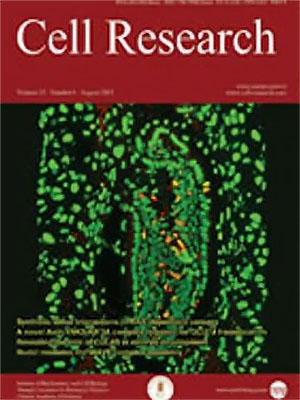Volume 3 Issue 2, July 1993: 147-156
ORIGINAL ARTICLES
Effect of antikeratin microinjection on the embryonic development of Xenopus laeyis
Haojian Yu, Jingwu Xie, Feng Cao and Jinhua Liang
Department of Biology, Beijing University, Beijing 100871, China
Correspondence:
Anti-keratin monoclonal antibody AF5 was introduced into fertilized eggs of Xenopus laevis., and its effects on embryonic development were studied. Survival rate of the antikeratin-injected embryos was much lower (only 35.76% at gastrula) than that of the control (74.85% at gastrula), in which embryos were injected with mouse IgG. Most of survivors in the experimental series showed aberrant external appearance. On the other hand, in cleavage stage, ie 2-7 h after fertilization, immunohistochemical staining of embryos showed that the experimental embryos were mostly keratin negative, while embryos of the control ones were keratin positive. When introducing this antikeratin into one cell of a 2-cell embryo, only the uninjected half of the embryo continued its development while the other half could not develop at all. These results suggested that intact keratin cytoskeleton in early embryos is indispensable to the embryonic development of Xenopus laevis.
Cell Res 3: 147-156; doi:10.1038/cr.1993.16
FULL TEXT | PDF
Browse 2406


